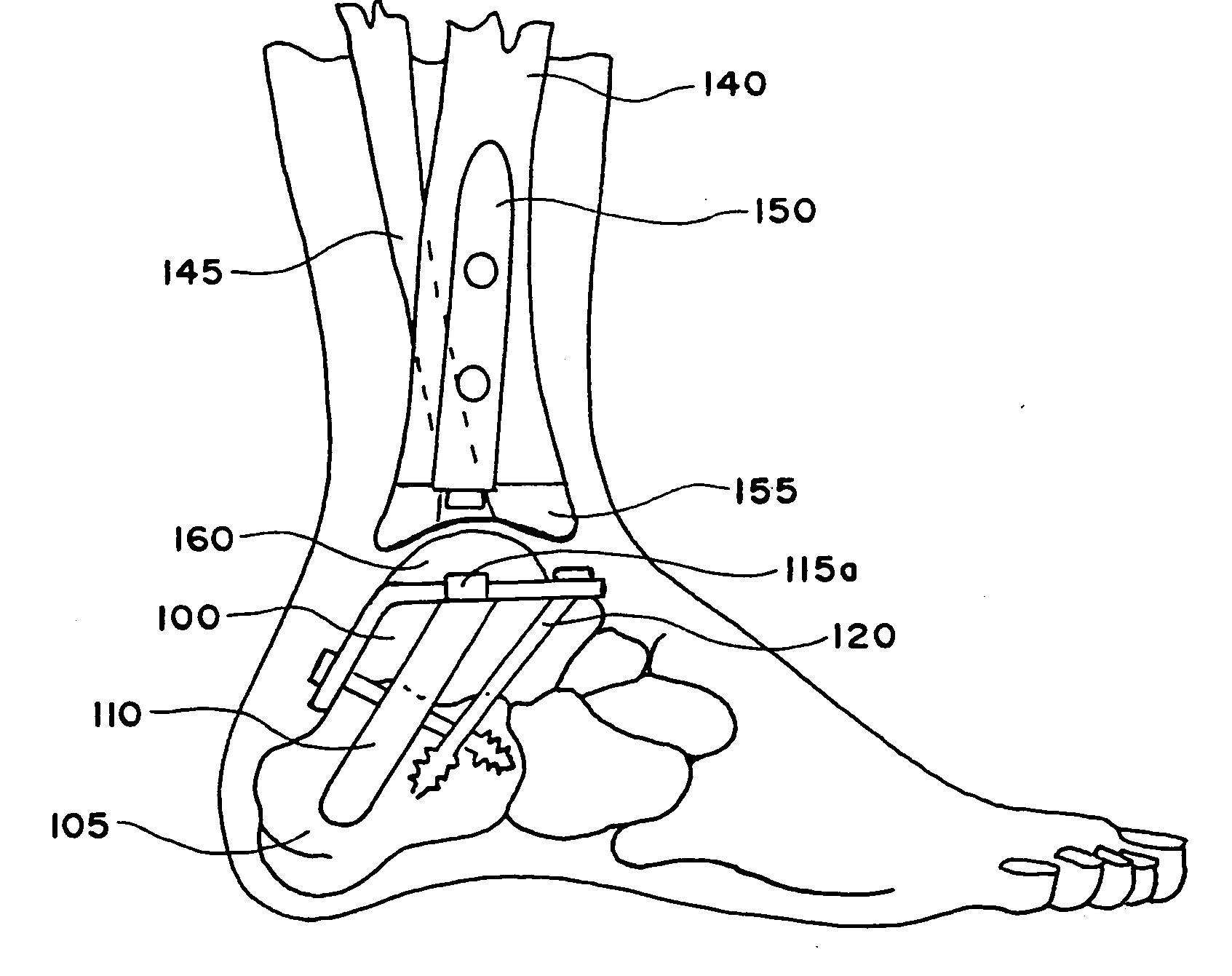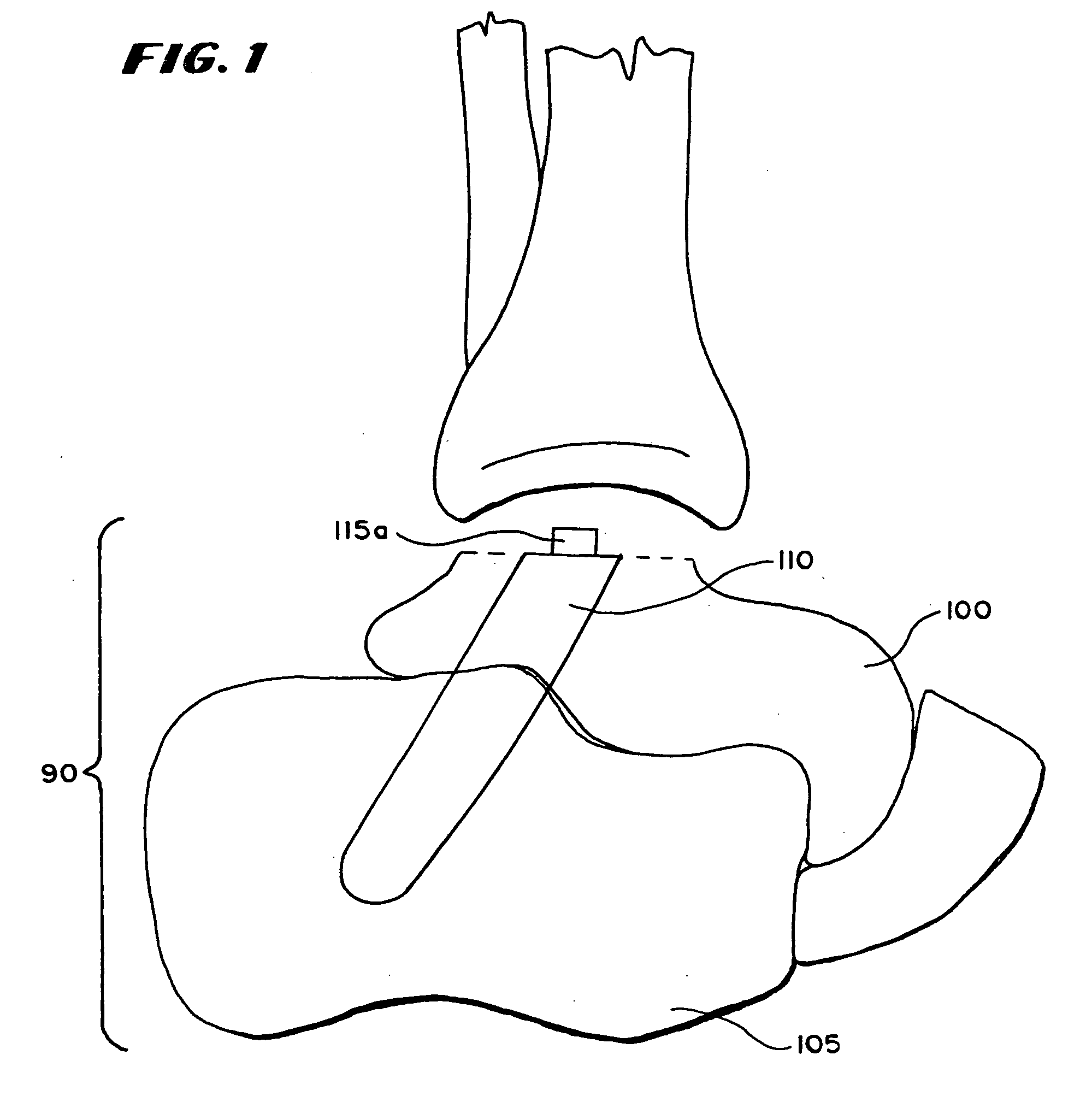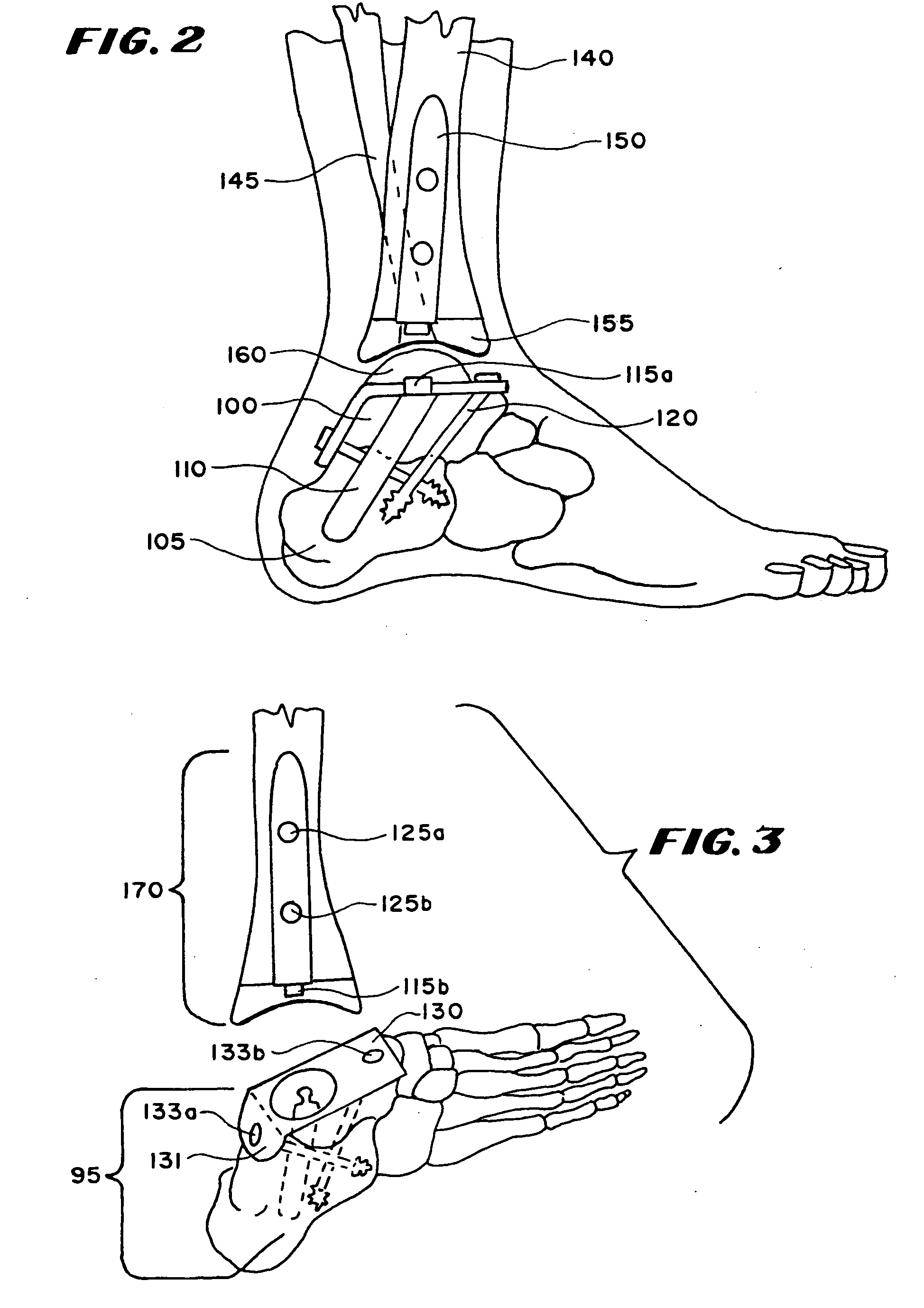Ankle replacement system
a technology for replacing joints and bones, applied in the field of bones replacement systems, can solve the problems of limited use, increased stress on the knee and hip joints, and poor long-range prognosis for patients
- Summary
- Abstract
- Description
- Claims
- Application Information
AI Technical Summary
Benefits of technology
Problems solved by technology
Method used
Image
Examples
Embodiment Construction
[0035] As embodied and broadly described herein, the present invention is directed to a novel system and method for Total Ankle Replacement (TAR). The ankle replacement system of the present invention includes a lower prosthesis body desirably fixed to the calcaneus and / or the talus, which greatly increases the amount of bone available for fixation as compared with conventional TAR systems, which traditionally included only the talus in fixation of a lower prosthesis. The enlarged available bone base allows fixation of larger talar trays or other prosthetic bases to provide greater prosthesis stability, and allows for anchoring of the lower prosthesis body with, for example, screws. This design provides greater stability and stress absorption for the prosthetic ankle joint, and decreases the probability of prosthesis loosening and subsidence.
[0036] In one embodiment of the present invention, the subtalar joint is fused to allow fixation of the lower prosthesis body to both the...
PUM
| Property | Measurement | Unit |
|---|---|---|
| length | aaaaa | aaaaa |
| length | aaaaa | aaaaa |
| length | aaaaa | aaaaa |
Abstract
Description
Claims
Application Information
 Login to View More
Login to View More - R&D
- Intellectual Property
- Life Sciences
- Materials
- Tech Scout
- Unparalleled Data Quality
- Higher Quality Content
- 60% Fewer Hallucinations
Browse by: Latest US Patents, China's latest patents, Technical Efficacy Thesaurus, Application Domain, Technology Topic, Popular Technical Reports.
© 2025 PatSnap. All rights reserved.Legal|Privacy policy|Modern Slavery Act Transparency Statement|Sitemap|About US| Contact US: help@patsnap.com



